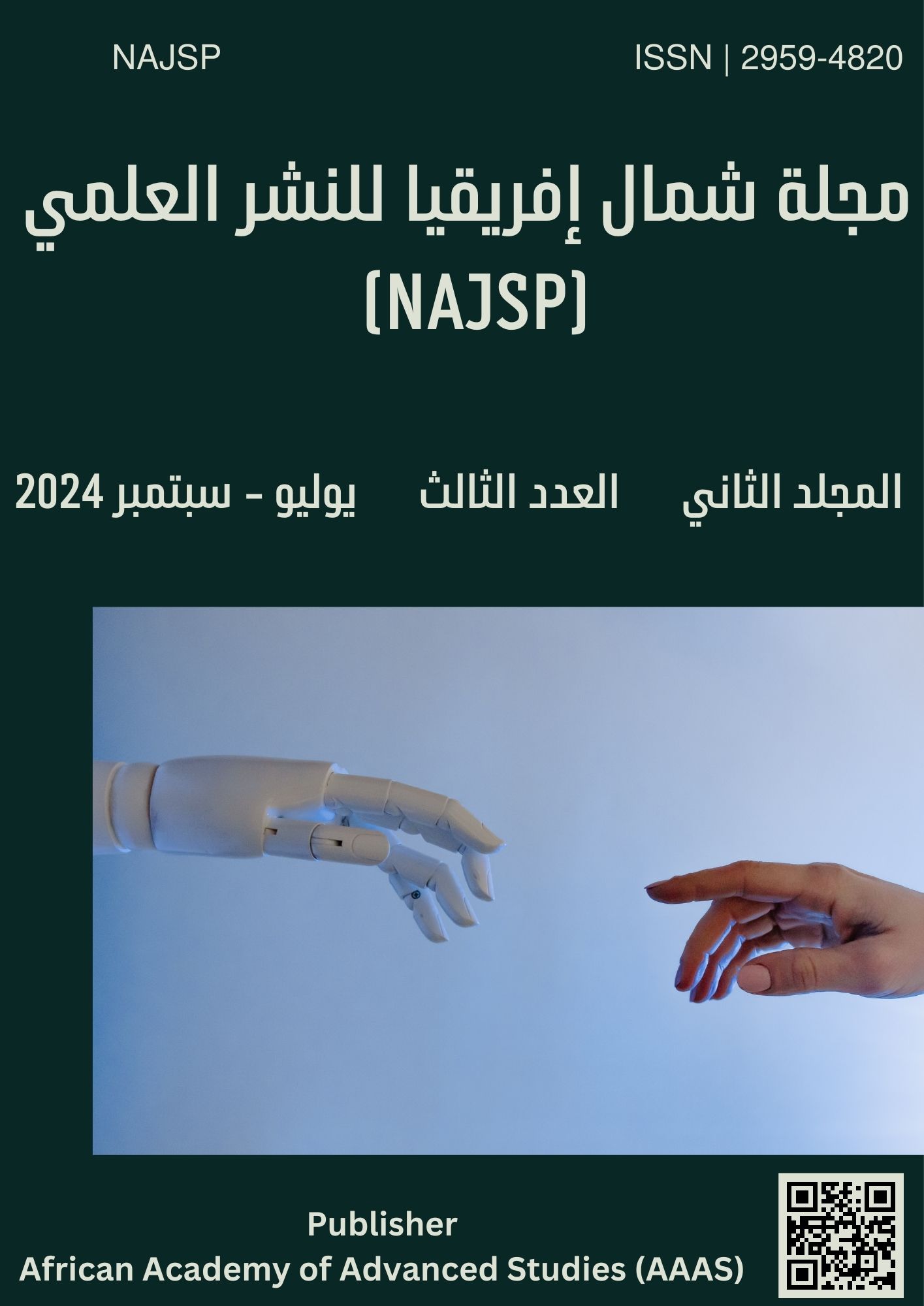Barriers to E-Learning Adoption among Higher Education Students In Libya
DOI:
https://doi.org/10.65414/najsp.v2i3.213الكلمات المفتاحية:
E-Learning, Student Attitudes, Community Acceptance, Educational Technologyالملخص
The integration of E-learning into educational systems has become crucial, particularly in developing countries like Libya. This study investigates the social and academic organizational factors that influence the adoption and effectiveness of E-learning in Libyan universities. Employing a mixed-methods approach, the research examines student attitudes, community acceptance, and E-learning adoption relationships.
Quantitative data were collected from 100 students and 30 Educators at the University of Tripoli recognized for its early adoption of E-learning. The study tested two hypotheses: H1, which posits a significant relationship between student attitude and E-learning adoption, and H2, which suggests a positive relationship between community acceptance and E-learning adoption. The findings confirmed both hypotheses, with strong positive correlations for student attitude (r = 0.62) and community acceptance (r = 0.57), both significantly predicting E-learning adoption.
Qualitative data were obtained through structured interviews with educators. Thematic analysis revealed that students expressed positive attitudes towards the flexibility and accessibility of E-learning. Moreover, community acceptance varied, with some resistance due to cultural preferences for traditional education.
These findings emphasize the need for supportive policies, investment in technological infrastructure, continuous training, and community engagement to enhance the effectiveness and sustainability of E-learning in Libya. Addressing these factors can significantly improve educational outcomes and resilience in the face of ongoing challenges, positioning E-learning as a viable alternative to traditional education.
التنزيلات
منشور
كيفية الاقتباس
إصدار
القسم
الرخصة
الحقوق الفكرية (c) 2024 Ahmed Abdullah Masoud, Fatimah Allafi Abdullah Isdayrah, Huda Sahl Mohammad

هذا العمل مرخص بموجب Creative Commons Attribution 4.0 International License.







